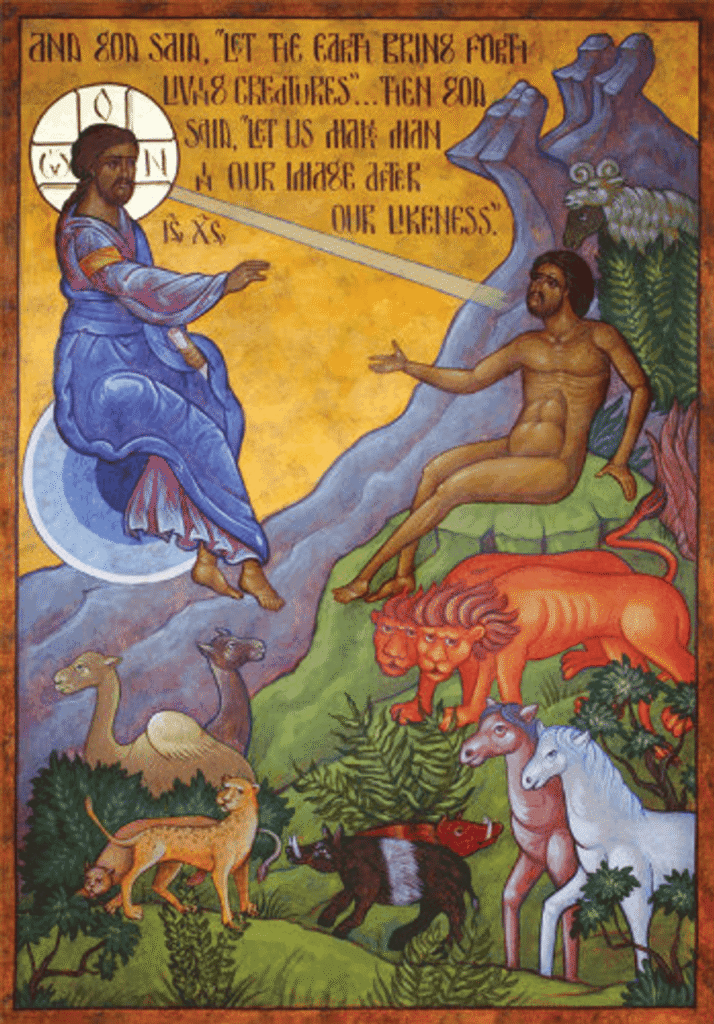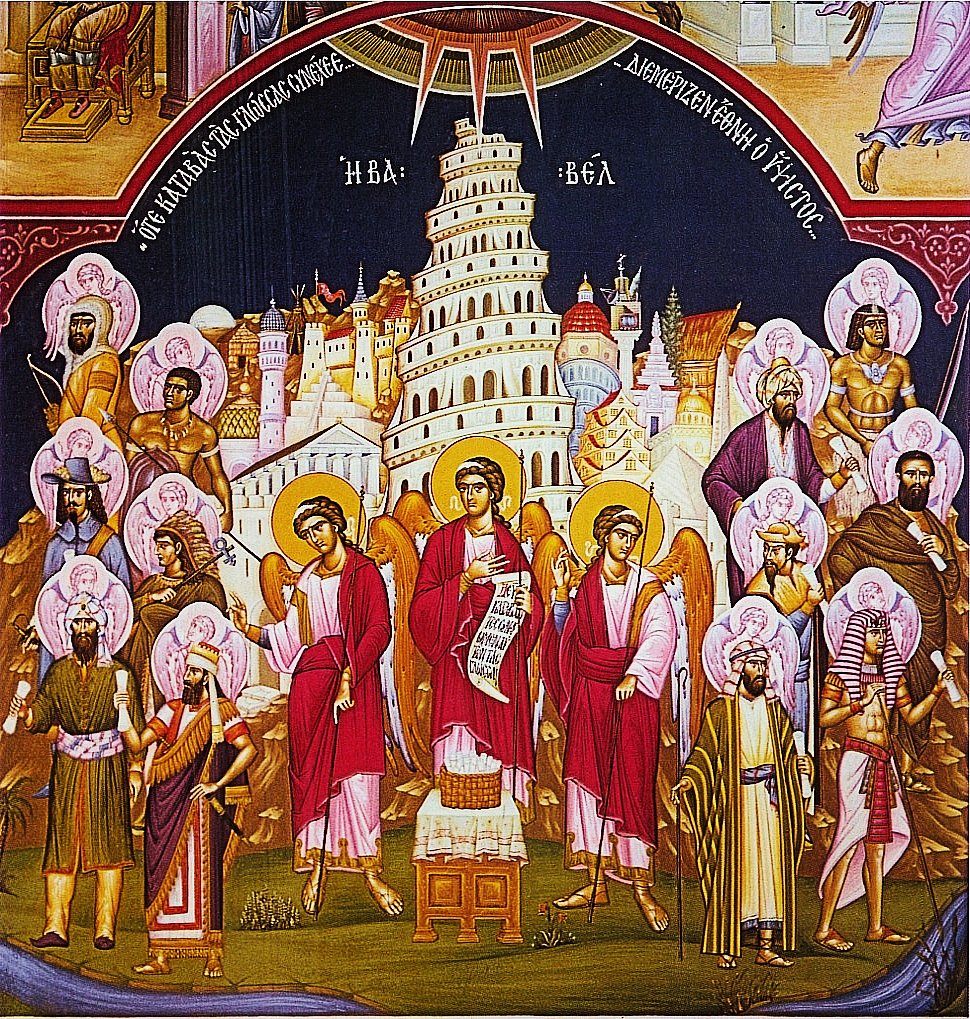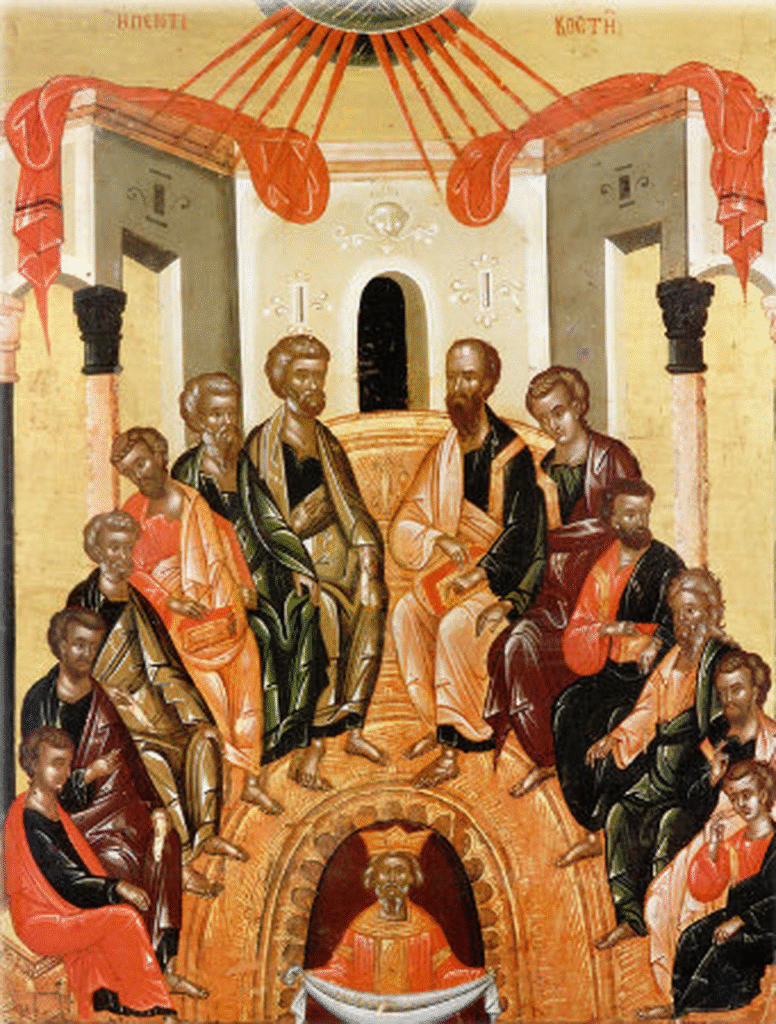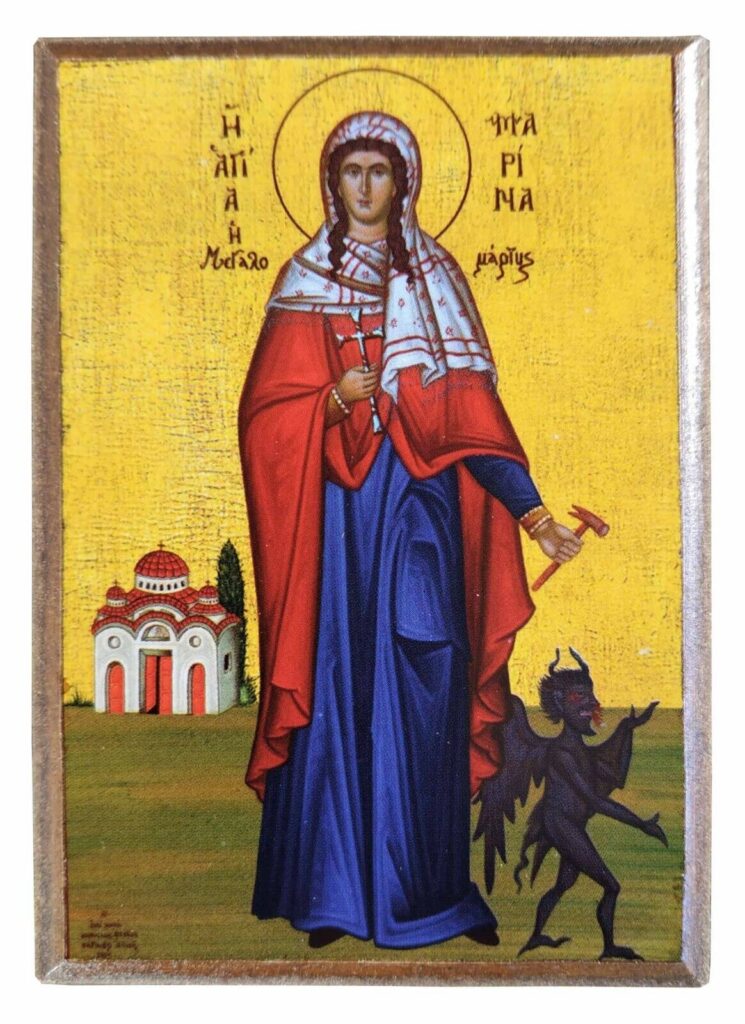Dear Friends
The Lord willed to create humanity that He may dwell with us: so the Lord created the heavens and the earth, from vast galaxies containing hundreds of billion of stars—each of those stars with seemingly infinite number of atoms—to the tiniest rock, the smallest petal, the most delicate snowflake; all was created that we might be with God.
And God set the man and the woman in the Garden. Man was hungry and all food was given that it may be communion with God, except the fruit of one tree.

Of every tree of the Garden you may freely eat;
but of the tree of the knowledge of good and evil you shall not eat, for in the day that you eat of it you shall surely die.
— Genesis 2:16–17
Because to eat from that tree was not in relationship with God, it was apart from Him. And the man and the woman colluded with the serpent and fell from the destiny given to them. Their first experience with an angelic being—a demonic being, a god—and they tried to justify their falling away from the destiny given to them by blaming another, “The woman whom You gave to be with me, she gave me of the tree, and I ate. … The serpent deceived me, and I ate.” (Genesis 3:12, 13)
And God cast them out of Paradise into this world. And in reading Genesis in isolation this seems like a punishment, a curse.
When Thou hadst fashioned man, taking him from the dust of the earth, and hadst honoured him with Thine own image, O God, Thou didst set him in the Paradise of Delight, promising him life-eternal and the enjoyment of everlasting good things in keeping Thy commandments. But when he disobeyed Thee, the true God, Who had created him, and was led astray by the guile of the serpent and rendered subject to death through his own transgressions, Thou didst banish him, in Thy righteous judgement, O God, from Paradise into this world, and didst turn him again to the earth from which he was taken,
Yet, through the lens of Christ, we can see this as providing a path so that we may maintain our destiny to dwell with God. So St Basil the Great, in his Anaphora (Eucharistic prayer), immediately continues,
providing for him the salvation of regeneration, which is in Thy Christ Himself. Yet Thou didst not turn Thyself away forever from Thy creature whom Thou hast made, O good One, neither didst Thou forget the work of thy hands; but Thou didst visit him in diverse manners, through thy tender mercies. Thou didst send forth prophets; thou didst perform mighty works by Thy holy ones who, in every generation, were well-pleasing unto Thee; Thou didst speak to us by the mouths of Thy servants the prophets, who foretold unto us the salvation which was to come; Thou didst give us the Law as an aid; Thou didst appoint guardian angels.
— Anaphora, Divine Liturgy of St Basil the Great
Yet man, when he interacted with gods—angelic beings—tried to use them, manipulate them to get what he wants, entering into rituals with these sons of God to bring evil and wickedness into the world (see Genesis 6:4): but this was not enough to satiate his desires.

Come, let us build ourselves a city, and a tower whose top is in the heavens; let us make a name for ourselves, lest we be scattered abroad over the face of the whole earth.
— Genesis 11:4
For man was not satisfied by colluding with and using gods, man wanted to build a Tower from where he believed God could be controlled. God had already promised that He would not again cover the earth with a flood, (Genesis 9:8–17) so He acted exactly as man desired and came down to that Tower.
But the Lᴏʀᴅ came down to see the city and the tower which the sons of men had built.
And the Lᴏʀᴅ said, ‘Indeed the people are one and they all have one language, and this is what they begin to do; now nothing that they propose to do will be withheld from them.
Come, let Us go down and there confuse their language, that they may not understand one another’s speech.’
So the Lᴏʀᴅ scattered them abroad from there over the face of all the earth, and they ceased building the city.
Therefore its name is called Babel, because there the Lᴏʀᴅ confused the language of all the earth; and from there the Lᴏʀᴅ scattered them abroad over the face of all the earth.
— Genesis 11:5–9
The Lord willed to create humanity that He may dwell with us: and did not leave us in this state—scattered, without understanding, without purpose. The Lord came down and became incarnate of the Theotokos, born under the Law, so that we be released from the delusion of idolatry, from captivity to sin, from fear of death.
‘Now is the judgment of this world; now the ruler of this world will be cast out.
And I, if I am lifted up from the earth, will draw all peoples to Myself.’
This He said, signifying by what death He would die.
— John 12:31–33
For we are drawn back into unity, into oneness, through the Cross that we might rise together with Him.
When the Day of Pentecost had fully come, they were all with one accord in one place.
And suddenly there came a sound from heaven, as of a rushing mighty wind, and it filled the whole house where they were sitting.
Then there appeared to them divided tongues, as of fire, and one sat upon each of them.
And they were all filled with the Holy Spirit and began to speak with other tongues, as the Spirit gave them utterance.
— Acts 2:1–4
Here and now, Babel has not been undone—languages are still divided, tongues are rent from one another—but it is no longer a curse but a blessing: our voices sing together in harmony rather than discordance for in Christ we have learned to listen to one another earnestly, to hear one another sincerely, to communicate with one another openly. Pentecost for us is a call back to oneness, completeness, wholeness: it reveals for us how God’s chastisement is for our reconciliation.
My dear brothers and sisters in Christ, we celebrate Pentecost not as an add-on to the Resurrection but as its fruit and consequence. God has poured out His Spirit on all flesh and we no longer have to be subject to gods, those demonic beings. And for those who are afflicted by evil we say, “Come! Let us stand against evil together!” And for those for whom their lives are full of despair we say, “Come! Let us discover the Truth in unity!” And for those who think they are too sinful to come before the Lord we say,

Come now, and let us reason together, …
Though your sins are like scarlet,
They shall be as white as snow;
Though they are red like crimson,
They shall be as wool.’
— Isaiah 1:18
We celebrate Pentecost, the Great Day, the day in which the Holy Spirit comes and vivifies us, enlightens us and guides us. And this fulfils our destiny, to dwell with God, that we may bear His likeness as well as His image. We are freed from the gods’ influence that we may be with God, we are no longer subject to their perverted enticements, we are united together that we may call out with all our voices,
Surely goodness and mercy shall follow us
All the days of our lives;
And we will dwell in the house of the Lord to the end of our days.
— cf. Psalm 22:6 ʟxx
Come and see!

There has come an opportunity to establish a new mission community in Chichester. Once running, we hope to serve a Liturgy there on certain Saturdays. Our Father in Christ, Metropolitan Silouan, has blessed this outreach and has entrusted it to the heavenly patronage of the Holy Great Virgin-Martyr and Vanquisher of Demons Margaret of Antioch (feast day 17th July).
If you are interested in supporting our parish’s mission, please let me know, and I will update you as we make progress.
Holy Mother Margaret, pray to God for us!
We serve a meal following the Liturgy on Sundays. All are welcome.
Do you, or someone you know, want to join our mailing list and receive our weekly email? Then let me know.
Sermon
In the name of the Father, and of the Son, and of the Holy Spirit, one God, Amen.
Why are you here? Why am I here? Is it to see friends and like-minded people? Is it as a release from the struggles of day-to-day life? Is it as a therapy for the mind? Perhaps it is in anger that another Christian tradition is too liberal, or too traditional, and here you will find your peace? Why are you here?
The Cherubic Hymn guides us to our purpose.
“Let us who in this mystery represent the cherubim
And sing the thrice-holy hymn to the life-giving Trinity
Now lay aside all the cares of this life
That we may receive the King of All
Invisibly escorted by the angelic host.”
For we are called to “lay aside all the cares of this life,” all our struggles, all our temptations, all that makes us happy or sad, rich or poor, healthy or ill, so that—as we ourselves are imaging of the cherubim and revealing the heavenly Court of the King of All—may receive Him, may receive Christ. We have come together, we have set aside our differences—some have more than others, some from periods of rejoicing others from periods of mourning—so that we may be One. But this may beg the question: “how can so many become one?”
…
Read this Sermon, Why are you here?
Archive of Past Sermons.
Services this week
Friday 6th June
Discussion on the Prophecy of Isaiah, 8 pm
Online only
Saturday 7th June
Great Vespers, 6.30 pm
At 3rd URC Scout Hall, Chandlers Ford
Sunday 8th June
Matins & Divine Liturgy, 9 am
At 3rd URC Scout Hall, Chandlers Ford
Online session is via Google Meet: please get in contact for the details.
Please join us: all are welcome, come and see.
Attending Church
We meet at 3rd URC Scout HQ, Kings Rd, Chandlers Ford SO53 2EY. The Scout hall is behind and to the left of the URC Church. Come and See.
Can I help you?
I am here for you, you need only ask. Is there a way I can support your life of faith? Get in touch.
Can you help the parish?
Yes, absolutely. Offer yourselves to the Lord: pray! Make available to him all your talents and ask him how he would like you to use them — listen for his reply.
Your prayers!
With love in Christ
Fr Alexander
webenquiry@orthodoxeastleigh.uk
